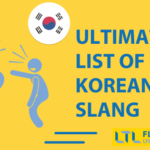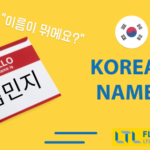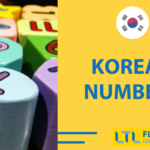29 Korean Jokes to Sound Like a Native
The Best Korean Dad Jokes to Make Your Friends Laugh 😂

Want to impress your Korean friends at a party or in casual conversation?
Why not learn some Korean jokes?
Korean culture is not fully limited to traditional aspects such as food, names, hangul… There is also a lot of humour!
It’s a great way to show that your Korean is improving and that you’re taking it to the next level.
Making jokes in a foreign language is one of the first steps towards fluency.
It shows that you are comfortable enough to use certain words or phrases to make people laugh but also that you have a great understanding of Korean.
In this article, you will find a list of quick-fire Korean jokes and a few puns. Of course, we’ll give you an explanation for each joke.
Let’s get started!
Korean Jokes | Dad Joke Explanation
Korean Jokes | All The Best Korean Jokes
Korean Jokes | Useful Vocabulary
Korean Jokes | FAQ’s
What is a Dad Joke?
There’s a word in Korean to refer to a “Korean Dad Joke”, this word is 아재개그 (ajaegaegeu).

This word is composed of two parts. The first part is 아재, is the contraction of the word 아저씨 (ajeossi) which means middle-aged man.
Koreans use this word to talk/refer to a man older than them. In 경상 dialect (Satoori dialect), “아저씨” (ajeossi) is pronounced 아재 .
Now let’s see what 개그 (gaegeu) means.
It is the word “gag” in English, meaning “joke”. Koreans probably use the word “gag” even more than native English speakers.
This leads us to the meaning of “dad jokes” (아재개그 ajaegaegeu). These jokes are silly ones that someone’s dad might say. Short and snappy in general with no crude factor or offence caused.

10 Common Korean Curse Words 🤬 Speak Like a Native
There’s no better way to speak like a native to use a swear word or two. The Korean language is no exception, check out 10 Korean Curse Words to learn.
All The Best Korean Jokes
Now let’s get down to business.
How many of these Korean Jokes will you get? Remember to drop us a comment below if you don’t understand any elements of the joke.
There are Korean jokes include English translations in addition to the explanations.
Some of these jokes are in Konglish. For those who don’t know, Konglish is a mixture of Korean and English.

Korean Slang // 25 Super Slang Terms You Must Learn (for 2025)
Ready to learn the most up to date Korean slang being used? This is the Korean slang that you will hear on the street or whilst watching K-Dramas and Movies
Jokes About People
What do you call a cute guy with no ears?
귀없다! (gwieopda)
귀 (gwi) -> ears
없다 (eopda) -> none or not existing
So, the word 귀없다 (gwieopda) means no ears. When pronounced quickly, it sounds like the Korean word for cute, which is 귀엽다 (gwiyeopda).
Where does a Korean grandfather look for love?
e-할머니! (e-halmeoni)
할머니 (halmeoni) means grandmother. If you add an e at the beginning, you get e-할머니 (e-halmeoni), which sounds like the online dating website e-harmony.

형 이씨 좀 불러줘 를 영어로 하면? How to say “Hyung, call Lee” in Korean?
브로콜리 (beulokolli)
형 = bro
불러줘 = call
이씨 = Lee
= 브로콜리 Brocoli
Which celebrity used to bag groceries?
짐캐리 (jimkaeri)
짐 (jim) in Korean means baggage. 캐리 sounds like carry. 짐캐리 (jimkaeri) sounds like the actor Jim Carrey.
So, his name sounds like carrying a bag of groceries 😅

Korean Names // What are the Naming Customs in Korea?
Korean names are usually composed of three characters, but do you know about their meanings? What about generation names and clans? Follow our guide.
Jokes About Drinks and Food
이 바나나를 먹으면 어떻게 될까요? What happens when you eat this banana?
저한테 반하게 됩니다. You will fall for me.
This is a pun. When you read the word “바나나” it sounds exactly like the word “반하나” which means “to fall for.” It’s a silly play on two words that sound the same!
저한테 불만있으세요? Do you have a problem with me?
아니요, 물도 있어요 No, I also have water.
“불만있다” means “to have a complaint.” But you can also break it down to “불만 있다,” which means to “have nothing but fire.” They tell you that not only do they have fire, but also water…
What sound does milk make when it falls over?
아야 (aya)
Milk in Korean is 우유, if we tilt the 우 90 degrees to the left we get 아.
Likewise if we tilt 유 we will see 야. 우유 > 아야 (aya)
It’s s clever play on the fact the letters can be turned around and change meaning.

What does a vampire drink in the morning?
코피 (kopi)
We all know that vampires usually drink blood, right? In Korean 코피 means nosebleed, which sounds like 커피 (coffee).
Where does a vampire go to get a drink?
코피 숍 (kopi syob)
코피 숍 Kopi syob sounds like the Korean word 커피 샵 (keopi syab) which means Coffee Shop, which also sounds like the English version.
As explained above, 코피 means nosebleed, so it’s a shop that sells nose-blood.
What did the cookie say to his friends when he was ready to go?
과자! (gwaja)
When it’s time to go, you say “let’s go” to your friends. In Korean, we would say 가자 (gaja). This expression is similar to the word 과자 (gwaja), which means “snack” in Korean.
In Korea, biscuits are considered snacks. So when a cookie is ready to go, it says to its other cookie friends, 과자 (gwaja)!
What do you call a coffee that can’t move?
모카! (moka)
In Korean, we say 못가 (mos ga) when we cannot go to a certain place or event.
This expression is similar to 모카 (moka), a type of coffee. Another pun to add to your list!
What is the most apologetic fruit?
사과! (sagwa)
사과 (sagwa) can mean two things in Korean: apple and apology.
Sometimes, when Koreans want to apologize to someone, they give an apple to show their remorse.
What noise does a toaster make?
빵! (ppang)
The word 빵 (ppang) sounds like a bang when a gun shot is heard.
It’s also means bread in Korean. What do you put in a toaster? 빵!
What do you call a 5 year old onion?
오년 (onyeon)
오 (o) = 5 // 년 (nyeon) = year.
5년 means five years and it is actually spelt as onyeon. Sound familiar? Yes, it sounds just like onion.

Korean Numbers // Discover the Two Numbering Systems Used (with Quiz)
There are two numbering systems in Korean. Native and Sino-Korean numbers. Both are not used in the same instances. We’ll teach you when to use them.
Korean Jokes About Places
Where do Australians keep their money?
호주머니 (hojumeoni)
In Korean, the word for pocket is 호주머니 (hojumeoni). But why Australians?
It’s because the word 호주 (hoju) in 호주머니 (hojumeoni) means Australia.
What country has the biggest noses in the world?
멕시코! (meksiko)
멕시코 (meksiko) is the way you spell Mexico in Korean.
코 (ko) means nose and 멕시 (meksi) sounds like maxi from maximum.
Which country has 4 arms?
네팔! (nepal)
In the Korean number system, the number 4 is read as 넷 (net). But the ㅅ of 넷 (net) is usually omitted when combined with nouns.
팔 (pal) means “arms” in Korean. Thus, 네팔 (nepal) literally means 4 arms in Korea.
What’s the ocean’s favourite number?
십! (sip)
십 (sip) is number 10 in Korean and is pronounced as ship.
인천 앞바다‘ 반대말은? What’s the opposite of “Incheon Appada”?
인천 엄마다 (incheon eommada)
If we look at the syllables of “앞바다” (Appada), we will see that it can also mean “it’s daddy”.
The opposite will therefore be “엄마 다” (Eomma-Da), “it’s mum”!
미국에서 내리는 비는? What do you call the rain in the US?
USB
“비” (Bi) in Korean means “rain”. So you call rain in the USA, USB.

Places in Korean | 100+ Useful Words for Beginners
Get a head start by learning the most common places in Korean and the vocabulary related to some of them. The bank, hospital and more. You’ll be ready.
Jokes About Animals

Where can you find a tired pig?
피곤해 (pigonhae)
피곤해 (pigonhae) in Korean means “tired“.
In English this sounds like “Pig on hay”.
직장인이 제일 좋아하는 말은? What is an office worker’s favourite horse?
주말 (jumal)
Horse in Koreans means “말“ (mal), but “말” (mal) also means end or last in Korean.
“주“ (ju) means week, so “주말” (ju-mal) means “Weekend”.
가시없는 물고기는 무슨 말 했어? What did the boneless fish say?
오 마이 가시! o mai gasi!
The key to this joke is the word “가시” (gasi), which means “bone”.
The boneless fish simply says “오마이 가시!” (O-mai-gasi), which sounds like “Oh my gosh!”.

170+ Animals in Korean 🐙 The Ultimate Guide for All The Animals!
From Cat to Butterfly, Koala, Crocodile and Sparrow, find out the names of 170+ animals in Korean in this fantastic vocabulary guide. PLUS flashcards!
Others
What do you call a broken motorcycle?
못타 사이클! (motta saikeul)
When a motorbike is broken, no one can use it, and so no one can ride it.
못타 (motta) means you can’t ride on it.
So when a motorbike is broken, it is called 못타 사이클 (motta saikeul) because no one can ride it.

What language do sheep speak?
양말! (yangmal)
양 = Sheep and 말 = word
So 양말 in this joke would mean “sheep words” or “sheep language”!
FUN FACT | 양말 is also a real word in Korean and it means socks.
When is the best time to catch a snowman?
After 눈 (nun)
The word 눈 (nun) has 2 meanings: snow and afternoon.
With this double meaning, that is why the best time to catch a snowman is in the afternoon!
Dad: Hey Jimin
Jimin: Hey dad
Dad: How’s your shoulder?
Jimin: OK.
Dad: I know it’s 어깨 , but how is it?
This is a dialogue between a father and son. The father asks the son (Jimin) about his shoulder, which means 어깨 (eokkae).
You’ll notice it is spelt exactly the same as “Okay”, hence the play on words.
세상에서 가장 지루한 중학교는? What’s the most boring middle school in the world?
로딩중 (lodingjung)
Korean colleges always end with “중 “. It is short for “중학교 “(college).
로딩 means something loading on the computer. So this is the most boring school, because you’re always sat waiting around for something.
만인의 파이는 뭐게? What is everyones favourite pie?
와이파이 (Wi-Fi)
Since the Korean alphabet does not distinguish between “P” and “F”, the “pie” that everyone loves is “wi-fi”. A very 21st century joke!

Best Apps to Learn Korean // Our Tremendous 12 for 2025
There have never been so many language learning apps on the market that nowadays! We analysed the best apps to learn Korean in 2021, so you don’t have to.
Vocabulary
Now that you’ve learned some Korean jokes, here are some common Korean words with basic sentence examples included.
| English | Korean | Transliteration | Example sentence |
|---|---|---|---|
| Joke | 농담 / 장난 | nongdam/ jangnan |
우리는 농담을 주고 받았어요.
We joked around 또 장난 전화예요. It’s a prank call again |
| Laugh (noun) | 웃음 | useum |
나는 웃음을 참을 수 없었어요.
I couldn’t hold back my laughter |
| Laugh (verb) | 웃다 | utda |
그는 자주 웃는다
He often laughs |
If you are using your phone or computer to communicate with Korean native speakers, you can use these slang formats.
- JJ -> Korean slang meaning “very funny” JJ (John-Jam)
- ㅎㅎㅎ -> This is a character you can use to show that you are laughing. It looks like the English “h”, so ㅎㅎㅎ can be interpreted as “hahaha”.
- 헤헤헤 -> “hehehe” this laugh has a similar usage as ㅎㅎㅎ.
- ㅋㅋㅋ -> pronounced as “keukeukeu”, it’s the most common way to express laughter in Korean.
- 키키키 -> essentially the same as ㅋㅋㅋ.
- ㅍㅎㅎ-> shortened version of 푸하하 (puhaha) which expresses a sudden burst of laughter.
Like learning jokes in other languages? Then why not check out our favourite Japanese jokes, Russian jokes, and our favourite Chinese Jokes also.
FAQ’s
How to say ‘Joke’ in Korean?
Joke in Korean is 농담 (nongdam).
What does 아재개그 (ajaegaegeu) mean?
This word is composed of two parts.
The first part is 아재, it is the contraction of the word 아저씨 (ajeossi) which means middle-aged man.
Koreans use this word to talk/refer to a man older than them. In 경상 dialect (Satoori dialect), “아저씨” (ajeossi) is pronounced “아재”.
개그 (gaegeu) means “gag” in English, meaning “joke”.
Koreans probably use the word “gag” even more than native English speakers.
What is a Dad Joke?
These jokes are silly jokes that someone’s dad might say.
How to say ‘Korean Dad Jokes’ in Korean?
Korean Dad Jokes in Korean is 아재개그 (ajaegaegeu).
What are some examples of Korean Jokes?
Where does a vampire go to get a drink?
코피 숍 kopi syob
When is the best time to catch a snowman?
After 눈 (nun)
Where do Australians keep their money?
호주머니 (hojumeoni)
저한테 불만있으세요? Do you have a problem with me?
아니요, 물도 있어요 No, I also have water.
Check out our article for more jokes and explanations.
What is the meaning of Konglish?
Konglish = Korean + English
So Konglish is a mixture of Korean and English.
Want More From LTL?
FANCY LEARNING KOREAN? Check out our online Korean courses here.
We offer a 7-day free trial to all online students where you can study Korean 24/7.
Want to study Korean in Korea instead? Our Korean courses in Seoul can either be taken in small groups of no more than 5 students or individually for a more tailored experience.
We even offer incredible homestay experiences in Seoul too.
To top it all off, it certainly doesn’t end with Korean. Check out the other languages we teach 👇🏻









2 comments
Missing two of my favourites. Why does the devil like Korean blankets? Because they're 이불 Why do giants like Korean tissues? Because they're 휴지 Dated reference; Why did Will Smith only order rice? Because he was getting 찌개 with it.
Ahah! Very good Stefan 🤣